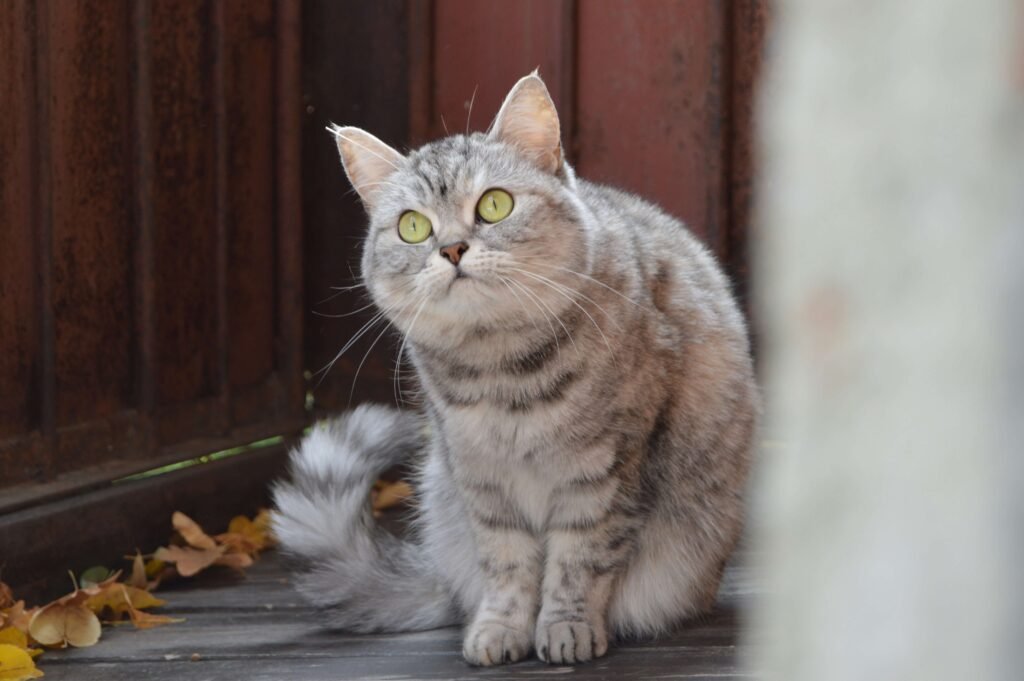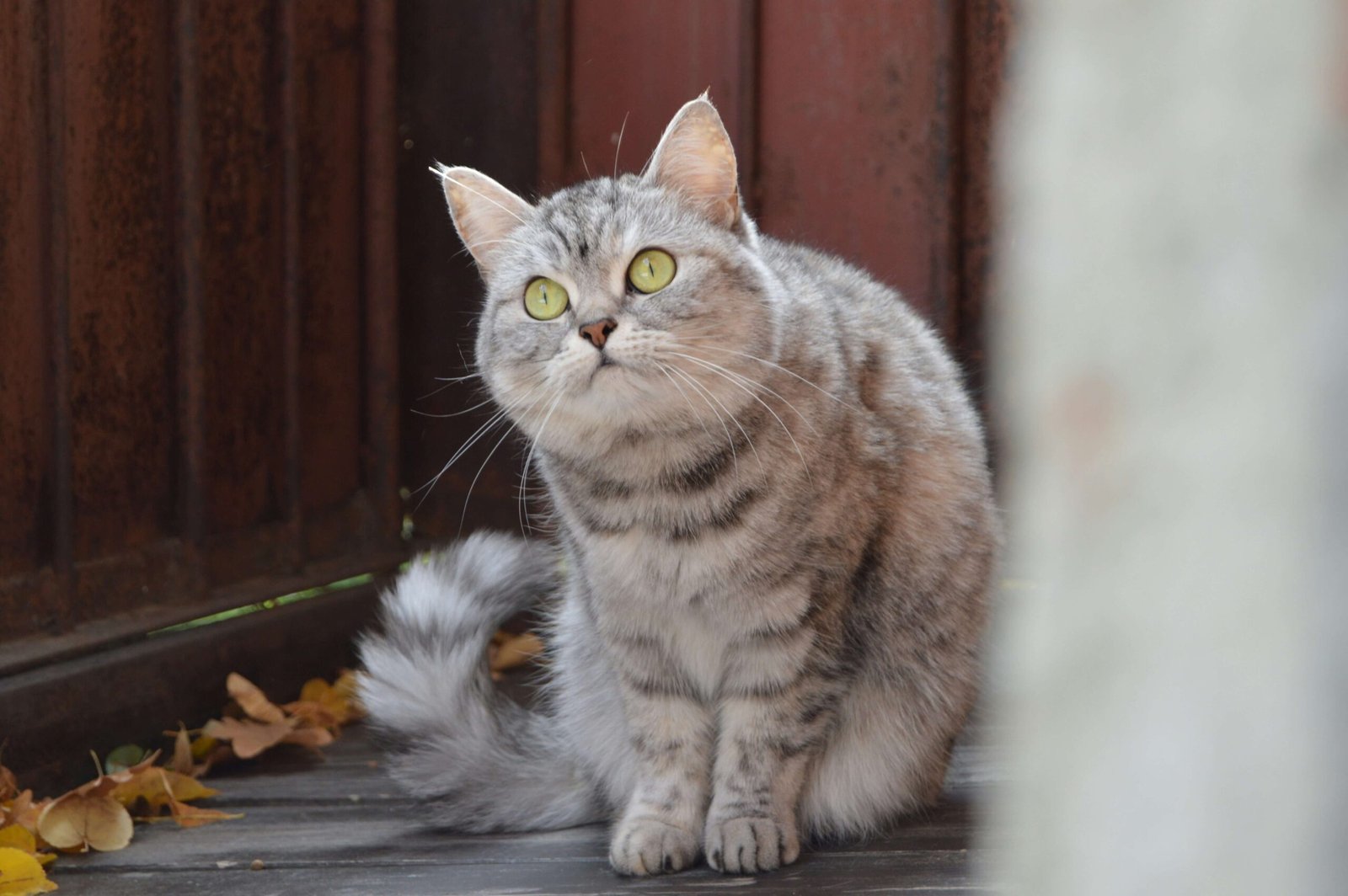My Cat Gave Birth to One Kitten but Still Looks Pregnant: What You Need to Know
It’s not uncommon for cat owners to feel puzzled when their cat gives birth to only one kitten yet still appears pregnant. This situation can raise concerns about whether everything went smoothly during labor or if there’s an underlying issue that needs attention. While single-kitten litters are rare, they do happen, and understanding why your cat may still look pregnant afterward is crucial for ensuring her health and well-being. In this blog post, we’ll explore possible reasons for this phenomenon, what signs to watch for, and how to care for your cat during this delicate time. Let’s dive into the details so you can support your feline friend confidently.
Possible Reasons Why Your Cat Still Looks Pregnant
If your cat gave birth to one kitten but still has a swollen abdomen, several factors could explain this. Here are some possibilities:
Retained Kittens
Sometimes, not all kittens are delivered during labor, leaving one or more inside the uterus, which can cause continued swelling.Postpartum Uterine Involution
After giving birth, the uterus takes time to shrink back to its normal size, making it seem like your cat is still carrying kittens.Fluid Retention
Excess fluid in the abdominal area after pregnancy can contribute to a bloated appearance.Undiagnosed Health Issues
Conditions like infections, cysts, or tumors might mimic the look of pregnancy even after delivery.Incomplete Labor
If labor was interrupted or incomplete, parts of the placenta or other tissues might remain inside, causing swelling.
Understanding these potential causes can help you determine whether your cat needs veterinary attention or simply more time to recover.
Signs That Something May Be Wrong
While some swelling after birth is normal, certain symptoms indicate that something might be amiss. Keep an eye out for the following warning signs:
Persistent Swelling
If your cat’s abdomen remains significantly enlarged for more than a week after giving birth, it could signal complications.Discharge or Bleeding
Abnormal vaginal discharge, especially if it’s foul-smelling or excessive, may point to infection or retained placental tissue.Lethargy or Weakness
A lack of energy or reluctance to move can indicate pain, illness, or exhaustion from incomplete labor.Loss of Appetite
Refusing food or water is a red flag that your cat may be unwell and requires immediate care.Behavioral Changes
Aggression, hiding, or unusual vocalizations can suggest discomfort or distress related to postpartum issues.
If you notice any of these signs, it’s essential to consult a veterinarian promptly to rule out serious problems.
Check this guide 👉Understanding Cat Pregnancy Tests: Best 7 Expert Tips!
Check this guide 👉Can You Spay a Pregnant Cat? Best 7 Health Tips!
Check this guide 👉How to Become a Cat Breeder: Best 7 Expert Tips!

Symptom | What It Could Indicate |
|---|---|
Persistent Swelling | Retained kittens or incomplete uterine recovery |
Foul-Smelling Discharge | Infection or retained placental tissue |
Lethargy or Weakness | Pain, illness, or exhaustion |
Loss of Appetite | Underlying medical condition or discomfort |
Behavioral Changes | Stress, pain, or anxiety |
How to Care for Your Cat After Giving Birth
Proper care is vital to ensure your cat recovers fully after giving birth, especially if she still looks pregnant. Here are some steps to follow:
Monitor Her Closely
Observe your cat daily for changes in behavior, appetite, or physical appearance.Provide a Comfortable Space
Create a quiet, warm, and safe area where your cat and her kitten can rest without disturbances.Encourage Hydration and Nutrition
Offer fresh water and high-quality food to help your cat regain strength and produce milk for her kitten.Check for Nursing Issues
Ensure the kitten is latching properly and gaining weight; difficulty nursing could stress the mother.Schedule a Vet Visit
Even if everything seems fine, a postpartum check-up can confirm your cat’s health and rule out complications.
By providing attentive care, you can support your cat’s recovery and ensure both she and her kitten thrive.
When to Seek Veterinary Help Immediately
Certain situations require urgent veterinary intervention to protect your cat’s health. Here’s when you should seek professional help:
Severe Abdominal Swelling
If your cat’s belly becomes increasingly large or hard, it could indicate a retained kitten or other serious issue.Fever or Chills
Elevated body temperature or shivering suggests an infection that needs prompt treatment.Excessive Vomiting or Diarrhea
Digestive upset can lead to dehydration and malnutrition, complicating recovery.No Interest in the Kitten
If your cat ignores or rejects her kitten, it may signal illness or hormonal imbalances requiring medical attention.Unusual Odors
Strong or unpleasant smells emanating from your cat’s genital area can indicate infection or retained tissue.
Acting quickly in these scenarios ensures your cat receives the care she needs to recover safely and avoid long-term complications.
Understanding the Role of Nutrition in Postpartum Recovery
Proper nutrition plays a critical role in helping your cat recover after giving birth, especially if she still looks pregnant. A balanced diet supports her physical healing and milk production. Here’s how you can ensure she gets the nutrients she needs:
High-Calorie Food
Offer calorie-dense kitten food or specially formulated nursing diets to meet her increased energy demands.Protein-Rich Meals
Protein is essential for tissue repair and milk production, so include high-quality protein sources like chicken or fish.Hydration Support
Ensure fresh water is always available to prevent dehydration, which can hinder recovery and milk supply.Small, Frequent Meals
Feed smaller portions more frequently to accommodate her reduced appetite and digestive capacity.Supplements (if Recommended)
Consult your vet about supplements like calcium or omega-3 fatty acids to support her overall health.
By prioritizing nutrition, you can help your cat regain strength and provide the best care for her kitten.
Recognizing Normal vs. Abnormal Postpartum Behavior
It’s important to distinguish between normal postpartum behaviors and signs of potential problems. Here’s what to look for:
Nesting Behavior
Cats often create cozy nests for themselves and their kittens, which is a natural and healthy instinct.Increased Affection
Some cats become more affectionate toward their owners after giving birth, seeking comfort and reassurance.Guarding the Kitten
Protective behavior, such as growling or hissing when approached, is common but should subside over time.Excessive Licking
While grooming is normal, excessive licking of the abdomen could indicate discomfort or irritation.Aggression Toward Kittens
If your cat shows aggression or neglects her kitten, it may signal stress, illness, or hormonal imbalances.
Understanding these behaviors helps you identify whether your cat is adjusting well or needs additional support.
Preventing Future Complications After Pregnancy
Taking steps to prevent future complications ensures your cat remains healthy throughout her life. Here’s how you can safeguard her well-being:
Spaying After Weaning
Spaying your cat after her kittens are weaned prevents future pregnancies and reduces health risks like uterine infections.Regular Vet Check-Ups
Schedule routine veterinary visits to monitor her overall health and address any lingering issues from pregnancy.Parasite Prevention
Use flea, tick, and worm prevention products to protect her and her kittens from harmful parasites.Minimize Stress
Provide a calm and stable environment to reduce stress, which can weaken her immune system and delay recovery.Monitor Weight Changes
Keep track of her weight to ensure she’s regaining strength without becoming overweight, which can lead to other health issues.
By focusing on preventive care, you can help your cat enjoy a long, healthy life free from reproductive-related complications.
Frequently Asked Questions About Cats Who Look Pregnant After Birthing
Is it normal for my cat to still look pregnant after giving birth?
Some swelling is normal due to uterine involution, but significant or prolonged swelling should be evaluated by a vet.
Can my cat have more kittens later?
Yes, cats often experience multiple heat cycles throughout the year unless spayed.
How long does it take for a cat’s abdomen to return to normal after birth?
Typically, it takes 2-4 weeks for the uterus to shrink back to its pre-pregnancy size.
What should I do if my cat isn’t eating after giving birth?
Encourage small meals of high-calorie food; if she refuses to eat for over 24 hours, contact your vet.
Can stress affect my cat’s recovery?
Yes, stress can delay healing and impact milk production, so provide a calm environment.
Supporting Your Cat Through Recovery
Caring for a cat who gave birth to one kitten but still looks pregnant requires patience, observation, and proactive measures. While some swelling and adjustment periods are normal, staying vigilant about potential complications ensures your cat’s health and happiness. By monitoring her closely, providing a nurturing environment, and seeking veterinary guidance when needed, you can help her recover fully and bond with her new arrival. Remember, every step you take to support your feline companion makes a difference in her journey to becoming a healthy and confident mother. With love and care, you’ll witness the joy of watching her thrive alongside her precious kitten.
Do Cats Have Taste Buds? Best 7 Expert Tips! – Discover how cats experience flavors and why their taste is so unique.
Do Dogs Have Taste Buds? Best 7 Expert Tips! – Discover how dogs experience taste, their preferences, and what it means for their diet and health.
Can Cats Taste Sweet? Best 7 Expert Tips! – Discover why cats can’t taste sweetness, how it affects their diet, and tips to keep them healthy and happy.
Can Dogs Taste Sweet? Best 7 Expert Tips! – Discover how dogs perceive sweetness, which foods are safe, and tips to manage their sweet cravings responsibly.





